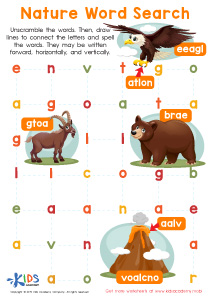Vocabulary expansion Normal Sight Words Worksheets for Ages 3-9
6 filtered results
-
From - To
Enhance your child's reading skills with our Vocabulary Expansion Normal Sight Words Worksheets designed for ages 3-9. These engaging worksheets help young learners recognize frequently used words, boosting their reading fluency and confidence. With fun, age-appropriate activities, children can easily absorb essential vocabulary, paving the way for successful communication and comprehension. Our expertly crafted materials make learning interactive and enjoyable, ensuring that children stay motivated and enthusiastic. Whether at home or in a classroom setting, these worksheets are a valuable resource for parents and teachers aiming to build a strong literacy foundation for their young readers.
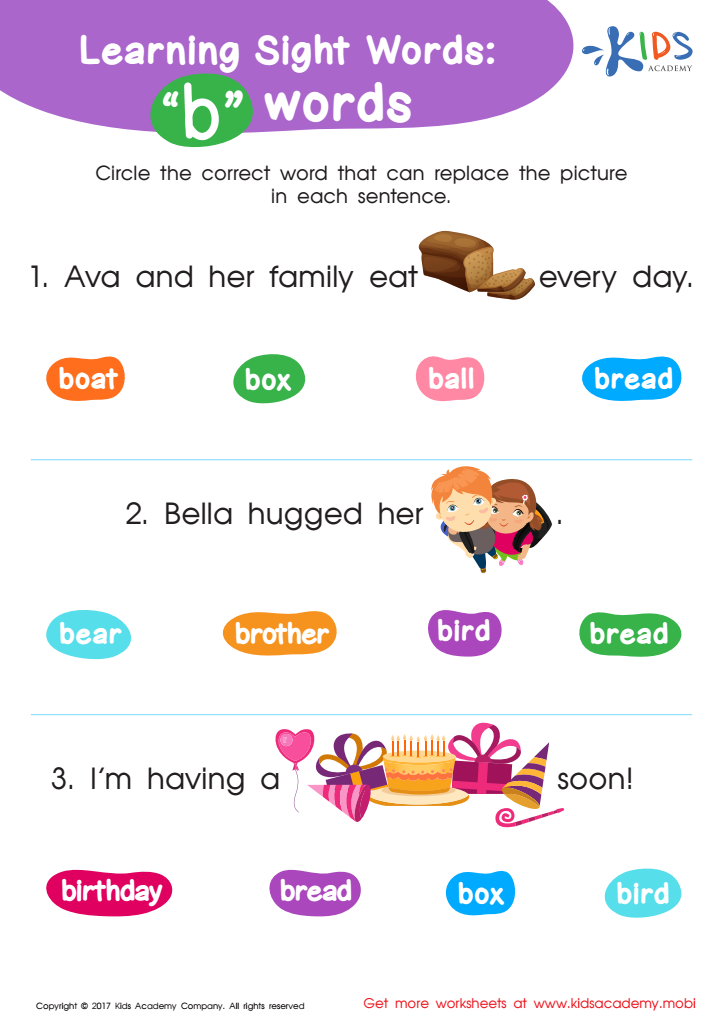

Sight Words Free Worksheet – B Words
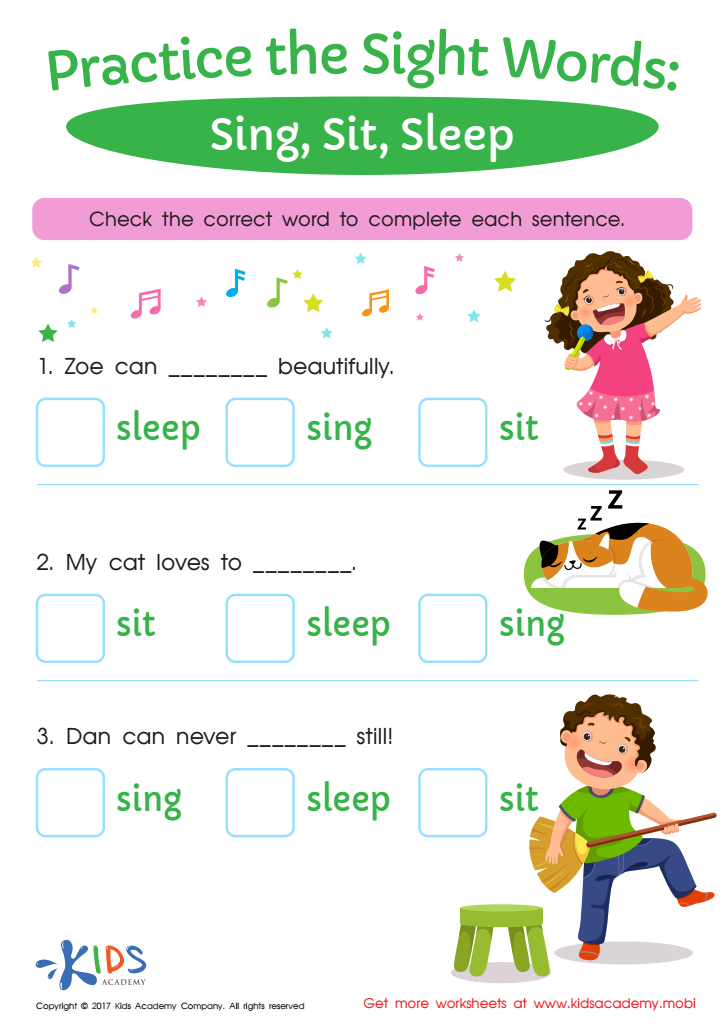

Sing, Sit, Sleep Sight Words Worksheet
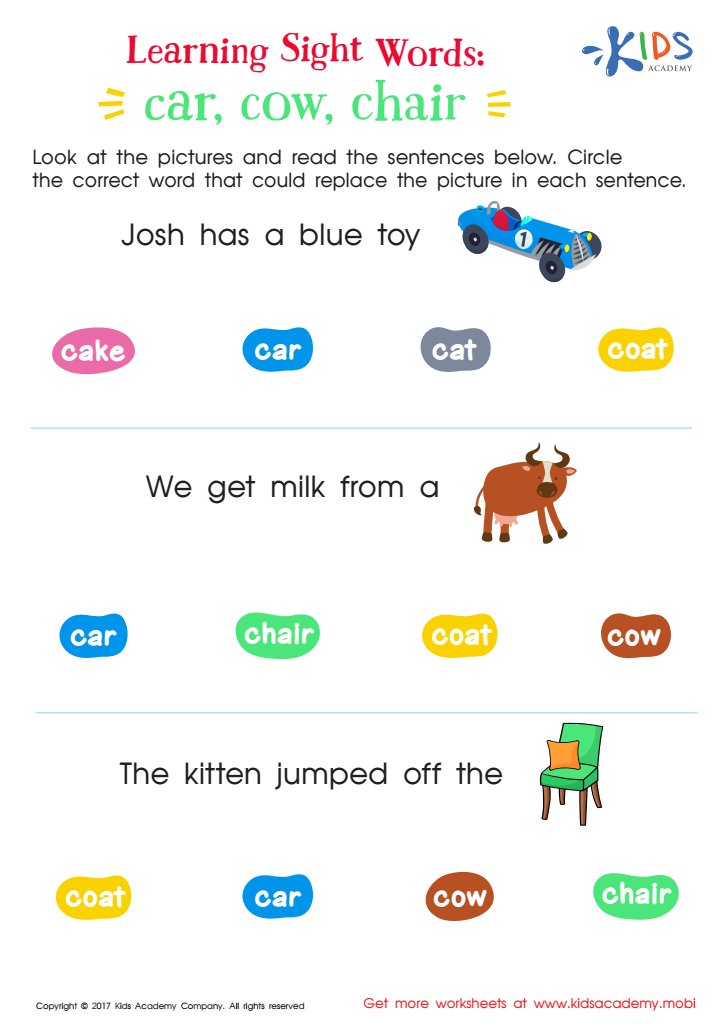

Car, Cow, Chair Worksheet Sight Words Worksheet
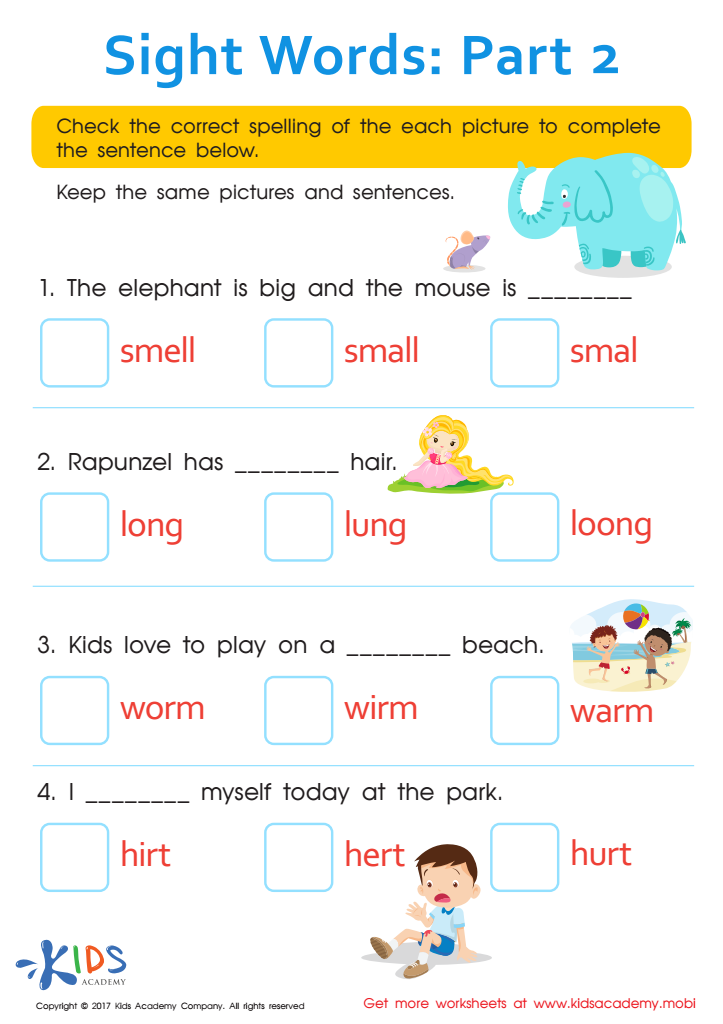

Sight Words Worksheet
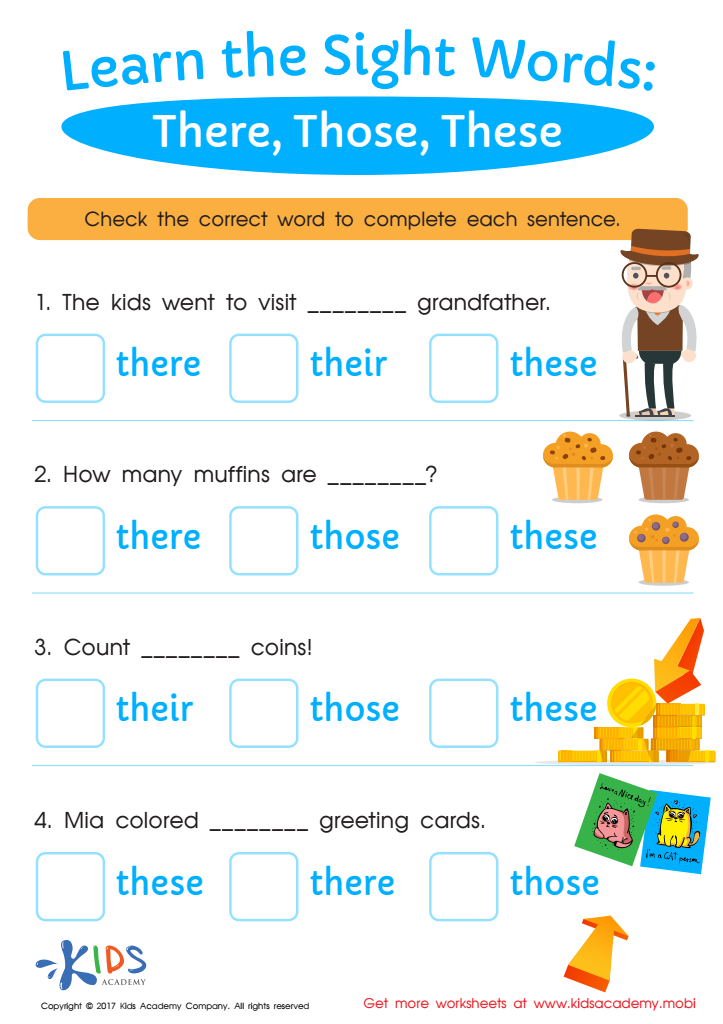

There, Those and These Sight Words Worksheet
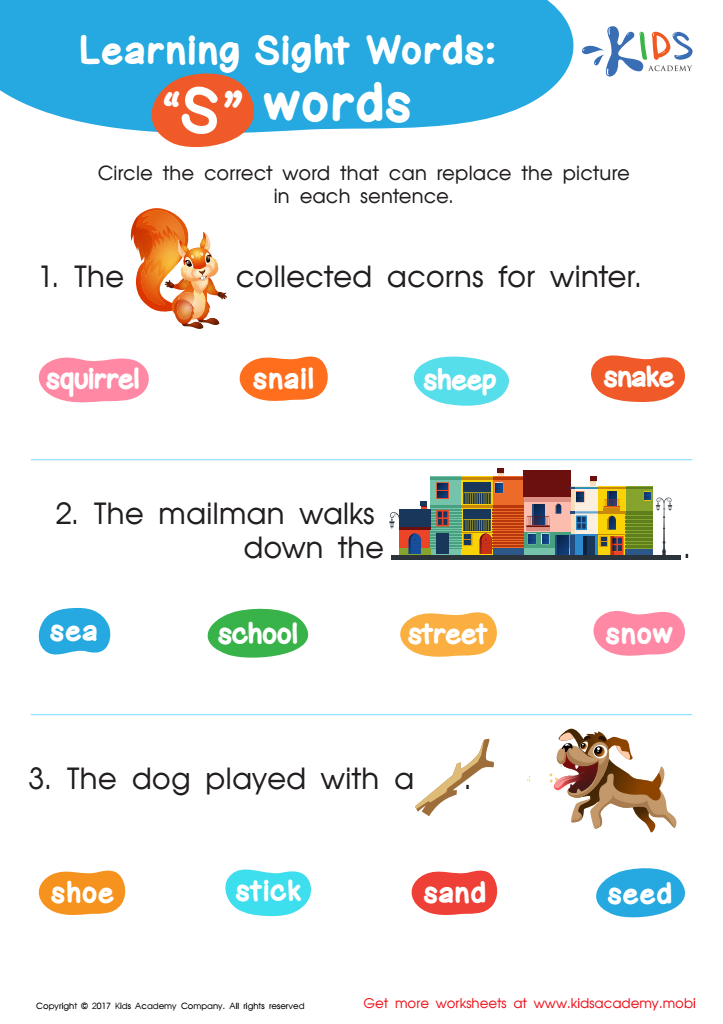

S Words Sight Words Worksheet
Vocabulary expansion and mastering sight words for children ages 3-9 is crucial for several reasons. First, a strong vocabulary is foundational for reading comprehension. When children encounter words they know, they can easily understand what they read, allowing for smoother and more enjoyable reading experiences. Sight words, which are frequently used words like "the," "and," and "it," appear often in texts. Recognizing these words instantly supports reading fluency, meaning children can read more quickly and spend less mental energy decoding individual words.
Second, a robust vocabulary aids in effective communication. Children who can express themselves clearly and accurately find it easier to interact with peers, teachers, and family members. This helps them build social relationships and succeed in classroom discussions.
Third, early vocabulary skills are strong predictors of later academic achievement. Children with well-developed language skills are better prepared for more complex subjects and problem-solving tasks encountered in higher grades. Enhancing vocabulary also promotes better writing skills and the ability to articulate ideas effectively.
Lastly, a rich vocabulary boosts confidence. Children who feel competent in their language abilities are more likely to participate in class, explore new topics, and develop a lifelong love of learning. Teachers and parents play a key role in fostering this development through engaging conversations, reading aloud, and vocabulary-building activities.

 Assign to My Students
Assign to My Students








